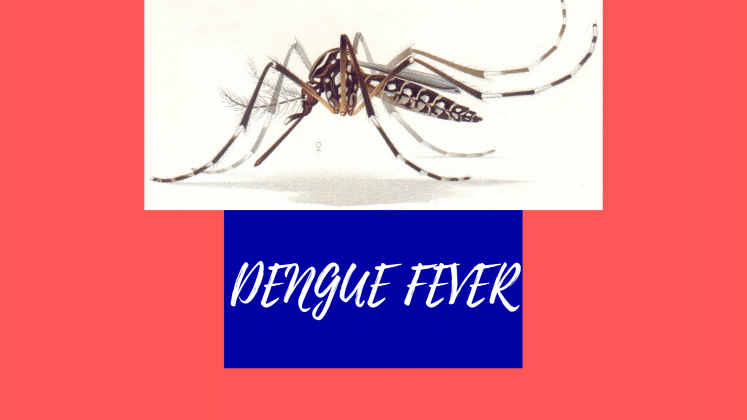Table of Contents
Dengue fever Case Studies
In my latest update on Dengue fever, I mentioned in detail the signs and symptoms, the treatment, the precautionary and preventive measures of the disease. In this blog page, I present a few cases which I have seen recently and either treated them myself or admitted to the hospital. Read on:
Case No.1
Recently one of my patients, Mrs.BM visited my Clinic with a complaint of high fever, severe body ache, headache, pain in eyes, mild cough, joint pain[esp.knees], vomiting sensation and loss of appetite for the past 2 days. On clinical examination, she had fever measuring 102.8° F, and blood pressure of 100/60 mm of Hg. Examination of the chest did not show any changes in breath sounds [like wheezing]. Similarly, the abdominal examination was insignificant. I sent her for blood investigations which came out as follows:-
1] CBC[ complete hemogram]:-
This showed hemoconcentration i.e. increase in hemoglobin[Hb] levels and Red blood cell [RBC] count, lowering of White blood cells [WBC] count and lowering of platelets, as shown below:-
RBC-5.65 millions/μl
Hb – 15.8 gm/dl
WBC-3200 /μl
Platelets- 1.35 lakhs/ μl
A glance at the right shows you how your normal CBC values should look like this→→→
So, the hemoglobin was up, RBC count was up, WBC count was down and platelets were down.
2] Test for Malarial Parasites[ MP ] :-
Negative
3] NS 1 Test for Dengue:–
This test came out to be very highly positive. This is an Elisa[enzyme Linked Immunoassay] test for detecting a non-structural protein 1 found in the blood of patient infected with dengue. Normally it is 0-11 units. In this patient, it was found to be 94 units.
The CBC report along with the highly positive NS1 test for dengue confirmed the diagnosis of dengue. As she was having a high fever, she was administered an antipyretic injection. As she was also dehydrated, 2 pints of IV fluids were given. Medicines included antipyretic like paracetamol, nimesulide was given for headache and body ache, chlorpheniramine maleate was given to control shivering[rigors] and domperidone was given for nausea. She was advised complete bed rest, plenty of oral fluids and a balanced diet. As her platelet count was going down, she was advised to take medicine containing papaya leaf extract. A follow-up visit was advised every alternate day with fresh CBC reports, which showed drastic improvement in platelet count in subsequent visits. She recovered fully after a week of rest and treatment and was prescribed a vitamin supplement to overcome any deficiency due to lack of appetite.
Case No.2
Mr. CBS came to my Clinic with c/o of high fever [104° F], severe pain in calves, rash all over the body, vomiting, diarrhea, and prostration. On examination, there was redness of the eyes [ a sign that there has been bleeding due to low platelet], his BP was low [ 90/60 mm of Hg], enlarged spleen on abdominal examination, dryness of tongue [due to dehydration], and acute tenderness [pain on touch] of the calves. There were also wheezing sounds on chest examination revealing fluid leakage in the lungs.
He was also advised blood tests on an emergency basis similar to Case No.1 along with three more tests:- 1] Liver function test 2] Bleeding time- clotting time[ BTCT] 3] Urine routine and microscopic. Reports revealed the following results:-
1]CBC –
Hb-16 gm/dl, RBC count- 6 million/μl, WBC count-2400/μl, platelet count-79000/μl.
2]NS1 test-
91 units.
3] Liver function tests
Showed that all the enzyme levels were increased along with bilirubin[the yellow pigment of jaundice]
4] BTCT ( Bleeding time and Clotting time)-
It was lower than the normal levels[ indicating some internal bleeding]
5] Urine reports –
It revealed RBC in urine[ again indicating internal bleeding] along with protienuria[leakage of proteins via kidney]
6]Test for malarial parasites
It was negative.
After screening the patient with all these reports and seeing the clinical condition of the patient, he was advised urgent admission in the Intensive Care Unit of a hospital for further treatment. He remained in the hospital for 10 days till full recovery.
Always remember, in case of a critical case as above, hospital admission is absolutely necessary to avoid a fatal outcome. This case could have progressed to Dengue Hemorrhagic Fever if he was not advised timely admission in a hospital.
Friends, with these two case presentations I hope you will be able to judge the severity of Dengue fever and take proper steps to avoid complications.

